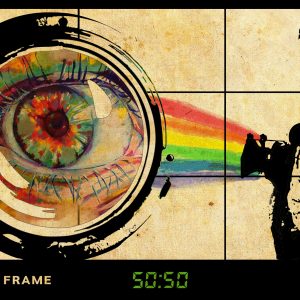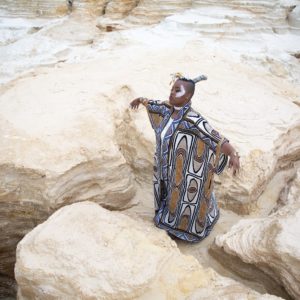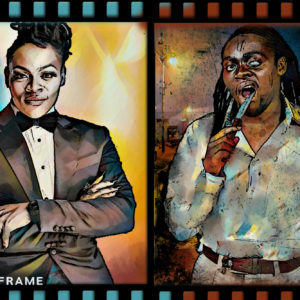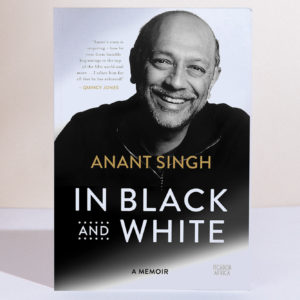Reabetswe Moeti’s justice will be televised
The filmmaker continues to craft stories that confront abuses of power in South Africa. She also advocates for better working conditions for women in the entertainment industry.
Author:
7 April 2022
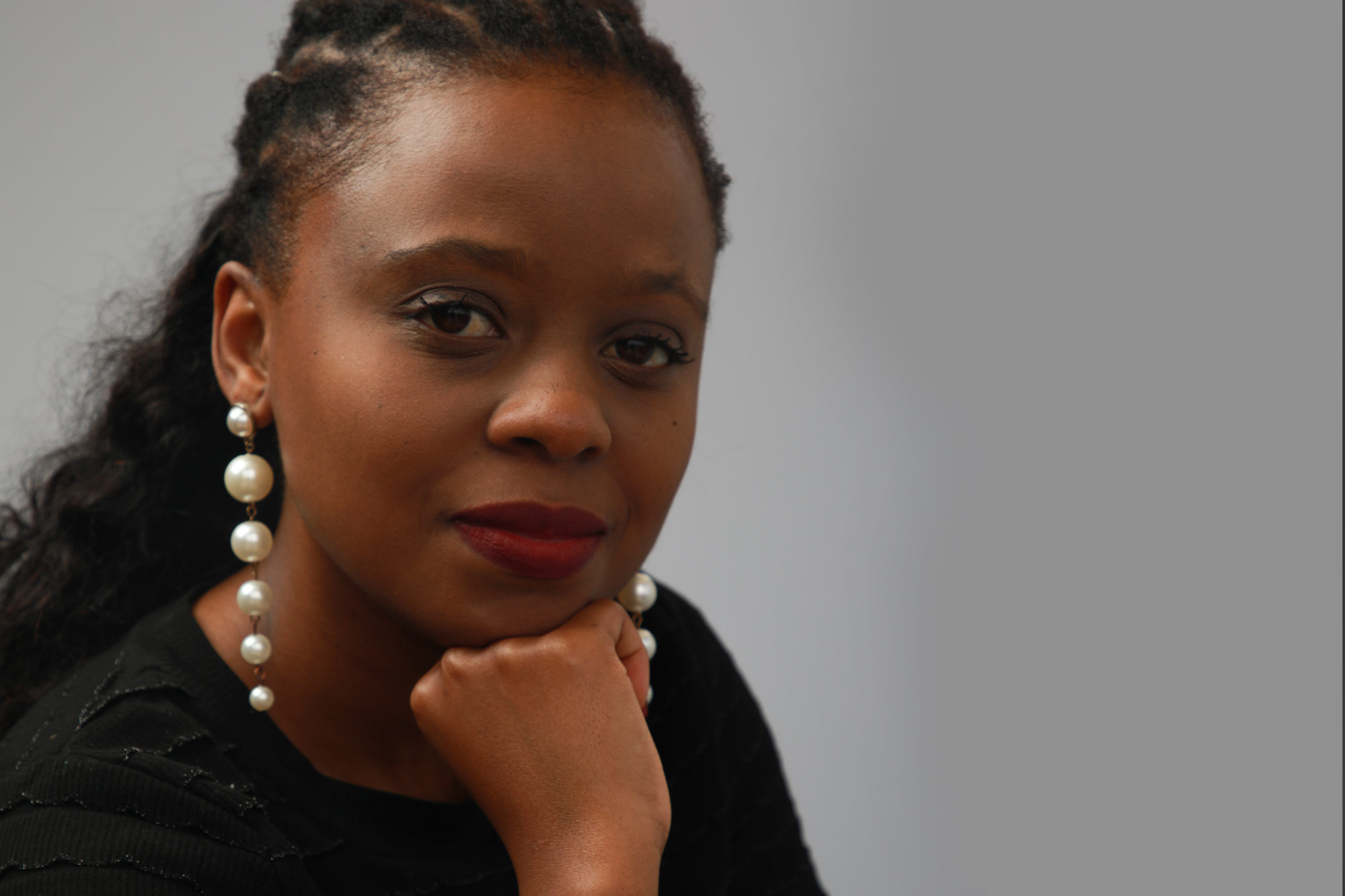
In Ga-Rankuwa, northwest of Pretoria, a township starved of cinemas, writer and director Reabetswe Moeti, 33, grew up watching “everything that was on television except the news”. This led to frequent fights with her grandparents, who raised her while her parents studied law.
“Every time the news came on, they would want to watch and l wasn’t interested in the news,” she says. To end these fights her grandmother bought her a television set that Moeti kept in her room. “I was literally a television junkie.”
That little girl who spent hours in front of the screen has become a heavyweight in the 15 years she has worked in the entertainment industry, with a reel of popular dramas and comedies that connect largely with Black audiences. Her creative prowess is behind shows such as Lockdown, Emjindini, uBettina Wethu, Abo Mzala, Ses’Top La and The Bantu Hour.
Related article:
She is also a vocal foot soldier for women’s rights in the industry, a rugged landscape of patriarchy, sexism, inequality, racism and prejudice. Moeti believes that the #MeToo movement that shone the light on continued sexual harassment, particularly in 2017 when it hit on Hollywood movie mogul Harvey Weinstein, kick-started an important conversation.
“When l started working in 2007, people could do what they wanted with you. You just felt uncomfortable and walked away. It was difficult to tell another woman the way you felt uncomfortable,” she says, adding that the industry still needs to do a lot of work in this regard.
The multi-award-winning Moeti is down to earth and soft-spoken. Hers was a happy childhood in a warm and loving household. Her grandfather worked as a taxi driver and eventually came to own taxis himself, while her grandmother was a cleaner at a hospital and a seamstress in her spare time.
Finding her artistic voice
At school Moeti enjoyed painting, drawing and other artistic crafts. But despite winning awards, she did not know what she wanted to do as an adult. When her parents finally became lawyers, she found them and their work in the community to be “very revered”.
“They were the first in my family to go to university. At the time, becoming a lawyer was considered high profile and very successful. And I think in my mind l kind of wanted to be like my parents in terms of the esteem that they had.”
While a younger Moeti wanted to be a lawyer too, she began to develop her artistic voice and decided to channel that early desire into films that centre their focus on justice. She started looking for and examining major turning points in post-apartheid South Africa that she could document or portray cinematically or artistically.
In 2018, she released the multi-award-winning short film Mma Moeketsi, which is based on the Marikana massacre on 16 August 2012, when the police killed 34 protesting mineworkers and left 78 others seriously injured. Moeti believes that despite talks of financial compensation or court cases, the families of the victims may never see true justice.
Related article:
If Mma Moeketsi, which was screened on Showmax and has also been licensed by the SABC, is a reflection of police violence post-1994, Moeti’s upcoming and touching dramedy Botlhale is a disturbing window on the dark and rotten soul of a country.
The film is based on the grim events of the Life Esidimeni scandal that unfolded between 2015 and 2016. The Gauteng Department of Health cruelly decided to abruptly transfer about 1 500 patients with mental health impairments to ill-equipped and unlicensed non-profit organisations, which led to gross human rights violations. Ultimately, at least 144 patients died owing to grave ill treatment, including torture and starvation. Almost 60 are still missing today.
No major government interventions to prevent this shameful episode from happening again have been made. And while the families of those who lost loved ones still live with the pain and heartbreak every day, an inquest to determine criminal liability in the matter limps along.
Careful treatment
The main character in Botlhale, who lives in a township with his brother, is sent to a mental health facility against his will. Though he makes friends while there, his goal is to escape.
Moeti has carefully framed and crafted her story so as not to mock, stereotype or stigmatise those who suffer from mental problems, showing empathy and respect for the characters. And though it has a light-hearted subplot, Botlhale raises serious and urgent questions about how mental health is approached. It will be showing on the festival circuit soon.
Beyond the movie, Moeti is concerned about women in the film and television industry, who get treated like informal sector workers. They have no stable employment, maternity benefits or pension funds and no unions to fight for them. Labour laws do not protect content creators, resulting in “a lot of pressure” that is causing mental health struggles.
Related article:
She decries the plight of many mothers who “don’t have support and can’t look after their children or can’t have their children looked after when they are on set working 12 hours a day”.
“What happens to them when they reach 40 or 50, or they cannot work anymore? You have slaved in this industry and you don’t have a pension. You are still renting and you don’t have your own home,” says Moeti.
Moeti believes that the white males who dominated the local industry since the 1970s had room to fail before they could succeed without being criticised. But, she says, “when we are coming up, we are expected to do it for the first time and do it right because we are in the spotlight and the opportunity is being handed to us.
Related article:
“Catching up is not going to be instant. We also need 30 years of guerrilla filmmaking and finding our film language to explore our cinematic selves and catch up and be the filmmakers that we want to be.”
Moeti still watches a lot of national television, and urges South African directors and producers to consume the home content they brew for others instead of criticising its quality. “We have one of the most successful television industries in Africa and it’s nothing to undermine, especially when you work in the industry that employs us, that feeds us, that allows us to have careers, not just jobs.
“We need a culture of watching local films, not to say it is just for people who cannot afford to watch international television and films while we are watching Game of Thrones,” she says.

